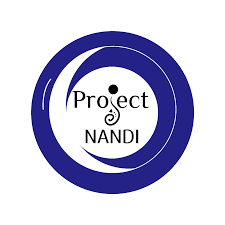A Visit to Net Inclusion Conference
In furtherance of our efforts to establish and strengthen our Internet Cooperative, I represented our organization at the Net Inclusion conference held in Pittsburgh, Pennsylvania. Accompanied by my co-chair, Tanika Fears, we sought to engage with industry leaders and stakeholders in addressing the digital divide. However, it was notable that the conference lacked representation from the communities directly impacted by this issue. Instead, prominent corporations like Comcast and Verizon dominated the proceedings, focusing on navigation training rather than community-centered solutions.
Despite this observation, I found valuable insights at the Institute for Local Self-Reliance (ILSR) conference, where the emphasis was placed on empowering communities and tribes to develop their own internet infrastructure. Through practical training sessions, such as those facilitated by the ILSR, we gained invaluable knowledge on the intricacies of establishing and operating as an Internet Service Provider (ISP). Moreover, discussions centered on the importance of community involvement and collaboration with local government entities to advance our mission.
Additionally, I participated in a session hosted by the National Telecommunications and Information Administration (NTIA), a federally funded nonprofit organization. This session shed light on strategies to address discrepancies in internet service coverage, particularly in areas where ISPs falsely claim to provide service. Such misinformation not only inhibits fair competition but also hinders access to funding for alternative providers, perpetuating monopolistic practices.
Through these experiences, I acquired comprehensive insights into federal initiatives and funding mechanisms relevant to our organization's objectives. While challenges persist, particularly in advocating for community-centric approaches, I am confident that our commitment to inclusivity and collaboration will drive meaningful progress in bridging the digital divide.
Closing the Digital Divide
It all begins with an idea.
How do we go about trying to close the digital divide in the Twin Cities? It is a question that has many layers. For some, it has to do with opportunity and not getting proper education on accessing the internet and technology. For others, it is just not being able to afford the high internet costs that they have to pay. Families and people who can't access the internet are at a disadvantage in every aspect of life, from education to the economy. With the pandemic changing how things work and having a lot of services moved online, universal access to high-speed Internet has been a statutory goal in Minnesota since 2018. It is still not fully possible for many in our community to access the internet. A study was done by Literacy MN where they stated most organizations saw a decrease in participants despite adding services since the pandemic started. "Organizations confirmed that digital access was a steep barrier for their participants." While nearly 70% of organizations reported that access to a device was a moderate or significant barrier to participation in their programming, with the added stress of a pandemic, the way to keep you safe becomes a burden for some. The digital divide has made our society of have-nots. Another study from Boston Consulting Group showed that in Minnesota, 28% of students do not have access to high-speed internet, and 18% do not have access to devices that can access it. Project Nandi is looking to close the divide and have BIPOC children not get left behind in society. We have programs families can sign up for to help get the resources needed to get help. Like reduced internet vouchers as well as getting access to technology. We want to improve learning outcomes for students that have been underrepresented by giving them access to the tools they need to achieve greatness.




